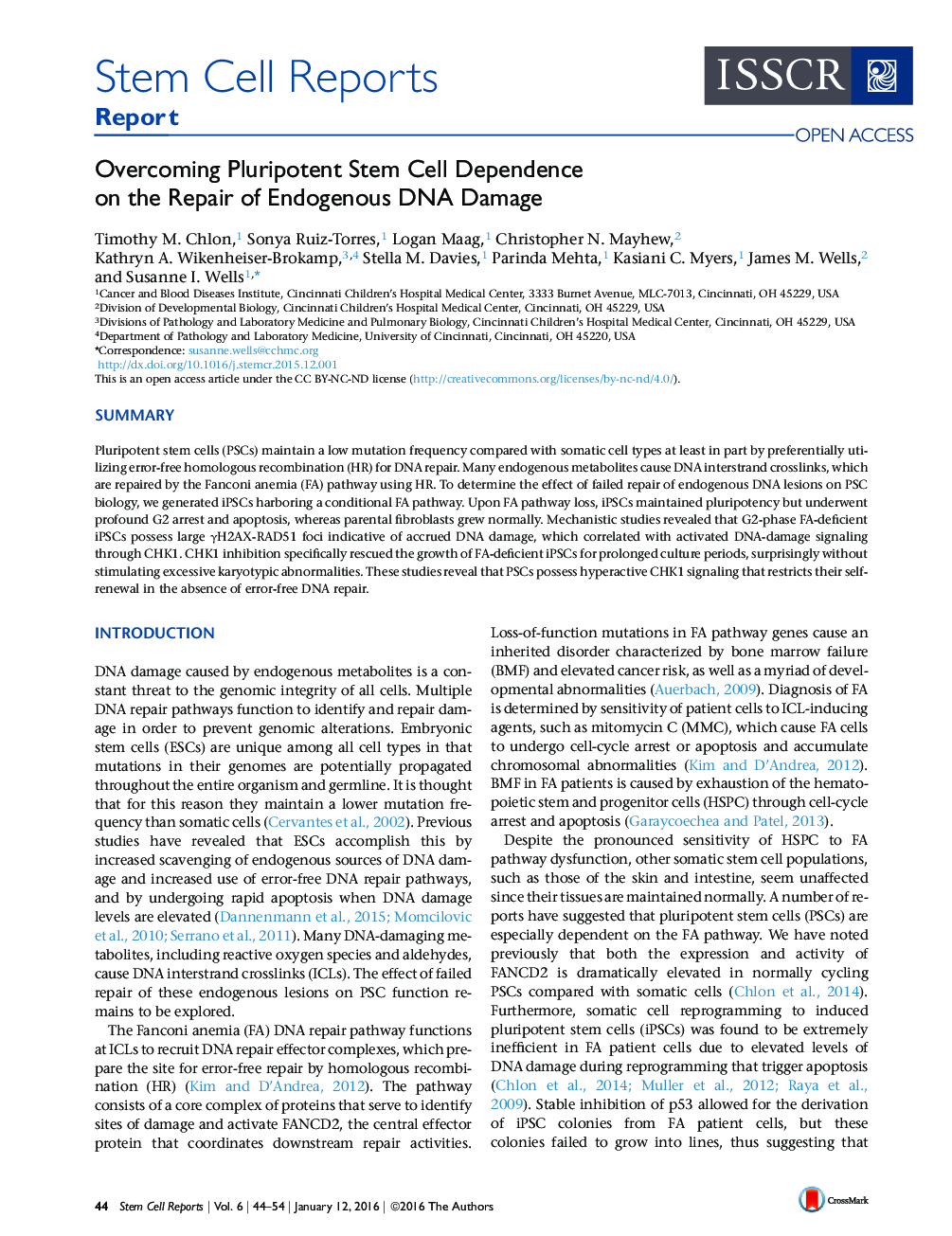| Article ID | Journal | Published Year | Pages | File Type |
|---|---|---|---|---|
| 2093287 | Stem Cell Reports | 2016 | 11 Pages |
•Self-renewal but not pluripotency of iPSCs depends on FA pathway function•Hyperactive CHK1 limits self-renewal in a conditional FA-deficient iPSC model•CHK1 inhibition rescues long-term growth of FA-deficient iPSCs
SummaryPluripotent stem cells (PSCs) maintain a low mutation frequency compared with somatic cell types at least in part by preferentially utilizing error-free homologous recombination (HR) for DNA repair. Many endogenous metabolites cause DNA interstrand crosslinks, which are repaired by the Fanconi anemia (FA) pathway using HR. To determine the effect of failed repair of endogenous DNA lesions on PSC biology, we generated iPSCs harboring a conditional FA pathway. Upon FA pathway loss, iPSCs maintained pluripotency but underwent profound G2 arrest and apoptosis, whereas parental fibroblasts grew normally. Mechanistic studies revealed that G2-phase FA-deficient iPSCs possess large γH2AX-RAD51 foci indicative of accrued DNA damage, which correlated with activated DNA-damage signaling through CHK1. CHK1 inhibition specifically rescued the growth of FA-deficient iPSCs for prolonged culture periods, surprisingly without stimulating excessive karyotypic abnormalities. These studies reveal that PSCs possess hyperactive CHK1 signaling that restricts their self-renewal in the absence of error-free DNA repair.
Graphical AbstractFigure optionsDownload full-size imageDownload as PowerPoint slide
